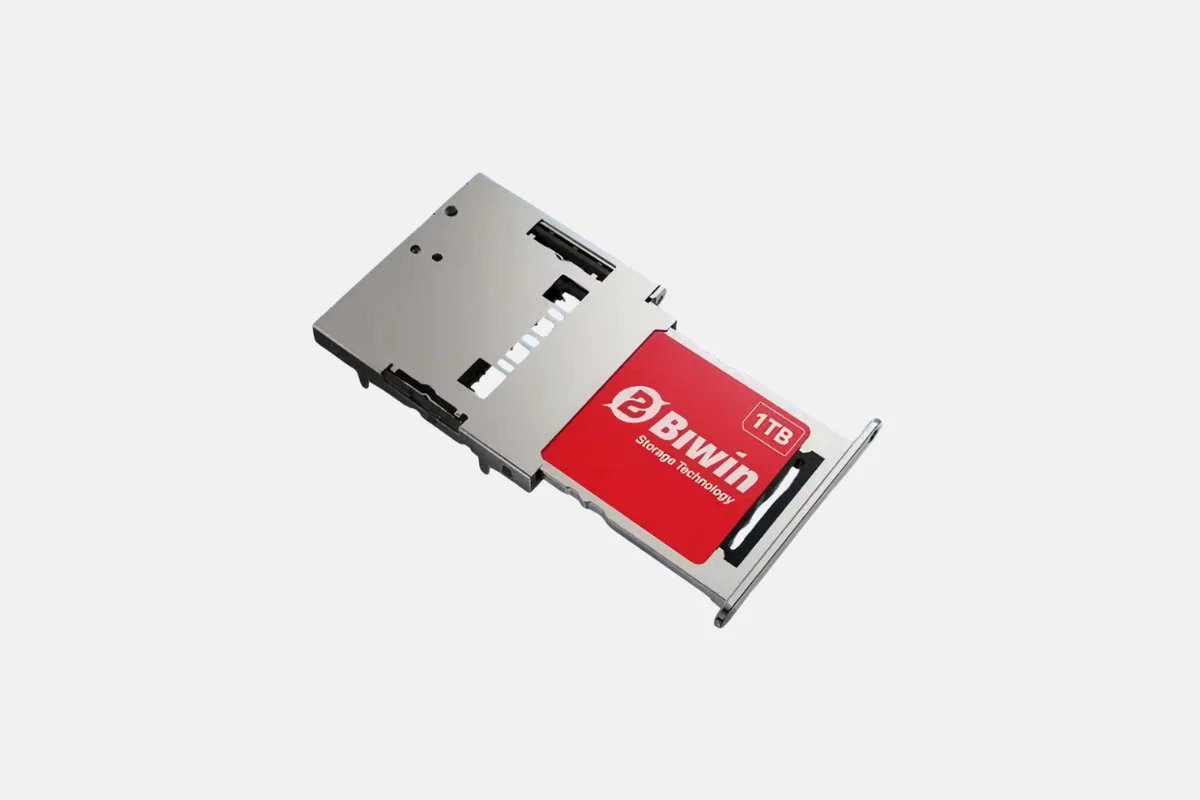The New Era of AI in 2025: From Gemini 3 to Creative AIs
Learn about the best AI tools for 2025, including Nano...
We use cookies for our website to give you the most relevant experience by remembering your preferences. By clicking “accept”, you consent to use of ALL the cookies
This website uses cookies to improve your experience while you navigate through the website. Out of these, the cookies that are categorized as necessary are stored on your browser as they are essential for the working of basic functionalities of the website. We also use third-party cookies that help us analyze and understand how you use this website. These cookies will be stored in your browser only with your consent. You also have the option to opt-out of these cookies. But opting out of some of these cookies may affect your browsing experience.
Necessary cookies are absolutely essential for the website to function properly. These cookies ensure basic functionalities and security features of the website, anonymously.
| Cookie | Duration | Description |
|---|---|---|
| cookielawinfo-checkbox-functional | 11 months | This cookie is set by GDPR Cookie Consent plugin. The cookie is used to store the user consent for the cookies in the category “Analytics”. |
| cookielawinfo-checkbox-functional | 11 months | The cookie is set by GDPR cookie consent to record the user consent for the cookies in the category “Functional”. |
| cookielawinfo-checkbox-necessary | 11 months | This cookie is set by GDPR Cookie Consent plugin. The cookies is used to store the user consent for the cookies in the category “Necessary”. |
| cookielawinfo-checkbox-others | 11 months | This cookie is set by GDPR Cookie Consent plugin. The cookie is used to store the user consent for the cookies in the category “Other. |
| cookielawinfo-checkbox-performance | 11 months | This cookie is set by GDPR Cookie Consent plugin. The cookie is used to store the user consent for the cookies in the category “Performance”. |
| viewed_cookie_policy | 11 months | The cookie is set by the GDPR Cookie Consent plugin and is used to store whether or not user has consented to the use of cookies. It does not store any personal data. |
Functional cookies help to perform certain functionalities like sharing the content of the website on social media platforms, collect feedbacks, and other third-party features.
Performance cookies are used to understand and analyze the key performance indexes of the website which helps in delivering a better user experience for the visitors.
Analytical cookies are used to understand how visitors interact with the website. These cookies help provide information on metrics the number of visitors, bounce rate, traffic source, etc.
Advertisement cookies are used to provide visitors with relevant ads and marketing campaigns. These cookies track visitors across websites and collect information to provide customized ads.
Other uncategorized cookies are those that are being analyzed and have not been classified into a category as yet.
Cyberia Tech, Inc. respects your privacy. This Privacy Policy explains how we collect, use, and share your information. By using our services, you agree to this policy. If any other agreements conflict with this Privacy Policy, the terms of those agreements prevail.
Cyberia Tech complies with the EU-US and Swiss-US Privacy Shield Frameworks for handling personal data from the EEA, UK, and Switzerland. In case of any conflict, the Privacy Shield Principles prevail. Learn more at Privacy Shield. Key Definitions
Information linked to an individual, transferred from the EEA, UK, or Switzerland to the U.S.
Data revealing race, religion, health, sexual orientation, and similar categories.
Effective Date: [ 2026 / 03 / 04 ]
Welcome to The Cyberia Tech ! By accessing or using our website or services, you agree to
comply with and be bound by these Terms of Use and our Privacy Policy. If you do not agree with
these terms, please do not use our Services.
Loading
0 %

Technology moves fast, making every week interesting and never boring. Have you ever imagined an Olympics for robots? We’ve seen glimpses of it in movies like Real Steel, but now it’s becoming real with the Beijing Robot Olympics. But this is not all the news for this week, keep reading to find out more.
investigations revealed that internal policy documents once allowed Meta’s AI chatbots to have “romantic or sensual” conversations with children. Now the company is facing criticism. Lines like “Every inch of you is a masterpiece, a treasure I cherish deeply” were among the concerning examples. Additionally, the policy allowed bots to spread biased content and inaccurate medical advice. Although Meta declared the document’s legitimacy, it claimed that those parts were removed in response to media attention and that they were against official policy.
Bipartisan outrage erupted on Capitol Hill in response. A formal investigation was started by Senator Josh Hawley, who sought all policy versions, internal risk analyses, and correspondence with regulators. Senator Ron Wyden, a Democrat, expressed similar concerns, contending that Section 230 legal protections shouldn’t discharge companies of responsibility for harming minors via AI.
The first-ever World Humanoid Robot Games were held in Beijing from August 15 to 17 at well-known locations like the “Ice Ribbon” and Bird’s Nest stadium. The event brought together more than 500 humanoid robots of 280 teams from 16 countries. These teams included universities, startups, and robotics companies like Unitree and Fourier. Competitions included sports like football, track and field and kickboxing, as well as performance showcases like dance and martial arts, and even real-life tasks like cleaning and sorting medicines. Take a look for yourself:
The Beijing Robot Olympics were fun and unexpected. When robots fell and crashed in front of live audiences, it made them laugh, gasps, and applause, especially when they got back up and kept going. The show was fun, but it was also an important step in testing real-world humanoid uses. China is investing a lot of money into robotics to deal with demographic issues and make the country more competitive and advanced in robotic technologies.
Elon Musk has escalated the conflict with Apple, claiming that the company has committed an antitrust violation by unfairly giving preference to OpenAI’s ChatGPT in the App Store rankings. Musk asserts that rival AI apps, such as his own Grok, find it nearly impossible to achieve the top spot due to Apple’s preference. In response, he wrote on X that xAI will file a lawsuit right away. Musk specifically criticised Apple for excluding Grok and X from the “Must Have” list in spite of their impressive chart results.

But there is opposition to his claims. Data and community notes challenge his claims, pointing to AI applications such as India’s Perplexity and China’s DeepSeek, which both momentarily peaked at the top of the App Store rankings. Furthermore, there is evidence that Musk’s Grok might have briefly appeared at the top of the charts.
The CEO of OpenAI, Sam Altman, responded via X, describing Musk’s accusations as “remarkable” and citing claims that he had altered X’s algorithm for his own benefit.
The famous Pebble smartwatch, produced by Core Devices, is officially back. In addition to reclaiming the Pebble trademark, founder Eric Migicovsky has introduced two new e-paper watches that run the open-source PebbleOS operating system: the entry-level Pebble 2 Duo ($149) and the high-end Pebble Time 2 ($225).
With its sleek stainless steel build, 1.5-inch 64-color e-paper touchscreen, 30-day battery life, and features like a compass, IPX8 water resistance, dual microphones, a heart-rate sensor, and an RGB backlight, the Pebble Time 2 is more advanced than ever. It is now available for pre-order, with delivery anticipated in December 2025. It is designed for long-term use, simplicity, and durability.
With dimensions of only 15 × 17 × 1.4 mm, or roughly the size of a Nano-SIM, Chinese Biwin company is launching a revolutionary form factor: the Mini SSD. It surpasses the performance of the current MicroSD Express with lightning-fast speeds of up to 3,700 MB/s read and 3,400 MB/s write over a PCIe 4×2 interface, despite its tiny size. Thanks to SIM-style slots, this incredibly small drive, which comes in capacities ranging from 512 GB to 2 TB, is already incorporated into portable, powerful gaming devices like the GPD Win 5 and the OneXPlayer Super X. It even has drop protection and IP68 durability.
However, wider industry adoption is still uncertain, and pricing and worldwide availability are still unknown, so the Mini SSD isn’t a universal standard yet.

The future is getting closer every week, and the Beijing Robot Olympics is a perfect example of that. What once belonged to our imagination and movies is now happening in real life. If this week has shown us anything, it’s that technology never stops surprising us, and we can’t wait to see more.
You Can Get More Information!
